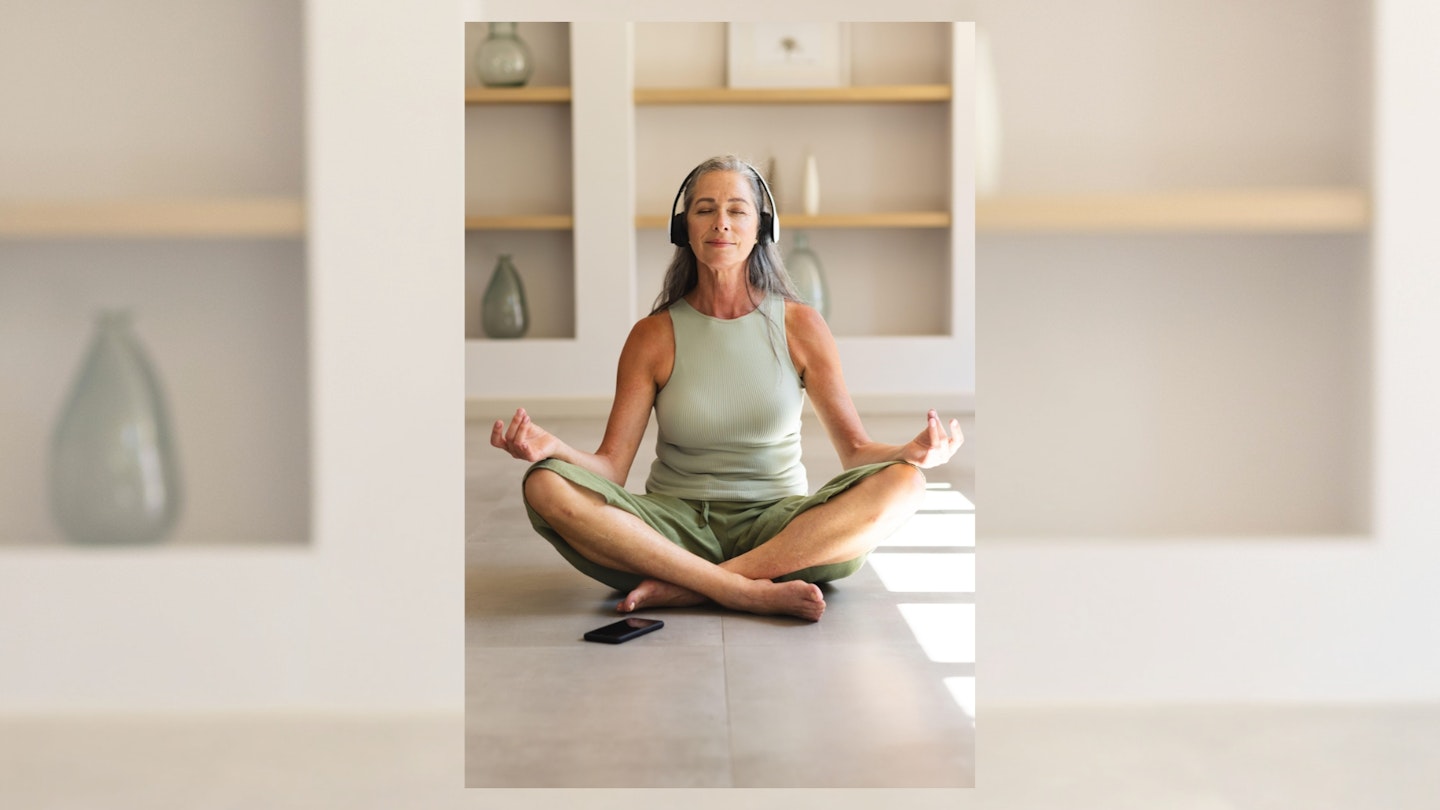With cold temperatures and short days, it’s no wonder low mood and anxiety are common during the winter months. Seasonal Affective Disorder (known as SAD) is thought to affect around two million people in the UK each year, and many more of us struggle with low mood during the winter months.
GP Dr Helen Wall says, ‘SAD is most commonly a depression that occurs in autumn or winter, in people who are otherwise well the rest of the year. Symptoms mirror those of depression: feeling low, demotivation, loss of pleasure and enjoyment that persists in all settings. If the way you are feeling is persistent and stopping you getting on with life, then you should see your GP.’
Whether you suffer from SAD or simply feel like you need to boost your mood, there are plenty of things you can do at home. ‘Focus on your overall wellbeing,’ says Dr Wall. ‘Eating a nutrient-rich diet, getting good-quality sleep and trying to get outside more in daylight can really help.’
Read on for some science-backed tips.
Meet the experts

-
Dr Helen Wall is a senior GP partner in Bolton. Visit drhelenwall.com
-
Kamalyn Kaur is a psychotherapist and anxiety expert.
Look through old photo albums
Nostalgia is good for us, and research shows looking back at the past fondly can boost our happiness and reduce stress.
Kaur explains, ‘We love a trip down memory lane because nostalgia has a comforting effect, helping us feel connected to past experiences and people we care about. It can often bring a sense of warmth and familiarity. When we feel down, revisiting positive memories can lift our spirits and remind us of what we value – it’s a powerful way to boost our mood.’

She suggests, ‘Look through old photo albums, listen to your favourite throwback songs, or watch classic movies.’
Walk in daylight
When daylight is in short supply, it can affect our mood as we spend a lot of our waking hours in darkness. It’s therefore important to get light when we can.

Dr Wall explains, ‘Light therapy is a recognised and recommended NHS treatmentto aid with winter SAD. The main theory is that a lack of sunlight might stop a part of the brain called the hypothalamus working properly, which can increase the production of melatonin, making you sleepy and weary, and reduce serotonin, causing your mood and motivation to dip.’
You can buy SAD lamps, which mimic daylight – some are even alarm clocks that gradually increase the amount of light in your room, making the dark mornings more bearable.
We also know that exercise boosts our mood, so taking a daytime stroll in the light can be doubly beneficial.
In fact, a team of Columbian researchers studied desk workers and found that participants felt better and more energised when they incorporated more walking into their day – even a walk lasting just few minutes every half an hour.
Watch a cute video
Sometimes the simplest of things can give us a boost. When researchers at the University of Leeds showed 30-minute montages of cute animal videos to participants, their blood pressure, heart rate and anxiety dropped.

‘Who doesn’t like cute animal videos?’ says Kaur. ‘They tap into our nurturing side filling us with warmth, love and joy for something that is so innocent and adorable. This reaction can quickly lower stress, increase dopamine, the ‘feel-good’ hormone, and bring a sense of calm. Watching just a few minutes of these videos when feeling low can act as a simple mood lift, offering a quick, healthy mental reset.’
Get creative
A paper in the American Art Therapy Association’s journal found that 45 minutes of creating art significantly lowered levels of cortisol (the stress hormone) in adults.

Kaur says, ‘Creative activities, such as painting, writing or crafting, can be therapeutic, offering a distraction from everyday worries. They allow the mind to focus on something positive, which can reduce stress levels and promote relaxation. Being creative also allows freedom of imagination and requires a level of concentration that can help shift our focus away from what’s on our minds. It’s also a welcome break from distractions like phones and TVs.’
Psychotherapist Kamalyn Kaur suggests, ‘Find something that appeals to you: painting, drawing, creative writing, journalling, crafting, photography, cooking or gardening.’
Look for a 'helpers high'
Doing a good deed or being kind – known to some researchers as a ‘helper’s high’ – has been shown to release oxytocin and serotonin, two hormones known for their pleasurable effects on mood.

Kamalyn explains, ‘Not only does being kind release feel-good hormones, but it also boosts our self-esteem as helping others gives us a sense of purpose and fulfilment. As well as that, kindness creates a ripple effect, often inspiring others to act kindly as well, which further enhances our own feelings of joy and satisfaction, creating a cycle of positivity.’
Acts of kindness don’t even need to be huge things either: complimenting a stranger, helping a neighbour with their shopping or simply having a chat with a cashier as you pay can all make a difference – and make them feel good too!
Have a laugh
We all feel better after a giggle. In fact, laughter increases the brain’s production of endorphins – the natural way your body relieves pain, reduces stress and boosts mood. It’s even linked to lifespan, and those with a sense of humour generally living longer!

Kamalyn says, ‘Laughter reduces levels of cortisol, helping to lower anxiety and improve overall wellbeing. Laughter enhances social bonds, encourages connection with others, and even has physical benefits, such as improving heart health and boosting immune function.’
She adds, ‘To incorporate more laughter into daily life, watch a funny movie, spend time with grandchildren, listen to a comedy podcast, read a funny book, or share jokes with loved ones.’
Dance around the house
The power of music and movement combined is an effective mood booster. Kamalyn explains, ‘Music activates the brain’s reward system, releasing dopamine and endorphins, which in turn elevate mood and energy levels. The rhythm also helps synchronise movement, making physical activity feel smoother and more enjoyable.’

Exercise is also known to boost your mood, but it can be the last thing we feel like doing when it’s cold outside. Kamalyn suggests, ‘Try incorporating movement into fun, everyday activities: turn up the music and dance in your kitchen, follow an upbeat online dance class, or try “exercise snacking” with mini workouts throughout the day. It’s like having bursts of energy and mood enhancement throughout the day!’
Try relaxation techniques
If you’ve not heard of ASMR, it might be worth looking into. Autonomous Sensory Meridian Response is a bodily response to certain visual or auditory stimuli that can cause a tingling sensation and deep relaxation. It can also improve happiness; one study found that 80% of participants said their mood improved after using ASMR. Some videos and audio tracks involve whispering, tapping or crinkling objects. Sounds strange? There are hundreds of videos on YouTube and audio tracks on platforms such as Spotify, so give it a try.

Kamalyn explains, ‘ASMR is soothing because it can trigger a calming, tingling sensation often starting on the scalp and moving down the body. This effect triggers parts of the brain that help you unwind, which reduces your heart rate and lowers stress. Listening to ASMR for even a few minutes a day can bring calm; some people find it helpful before bed or during stressful moments. You can try out different ASMR sounds to see what works best for you.’
Annabelle Lee is a Lifestyle Editor at Bauer Media. She specialises in health, wellness and lifestyle celebrity content.
Annabelle studied Journalism at The University of Sheffield and started her magazine career at Cosmopolitan in 2010. She has since worked across a wide range of women’s interest magazines and remains passionate about writing and long form features. Her favourite part of the job is that she gets to constantly learn new things, interview fascinating experts and share their advice with readers.
